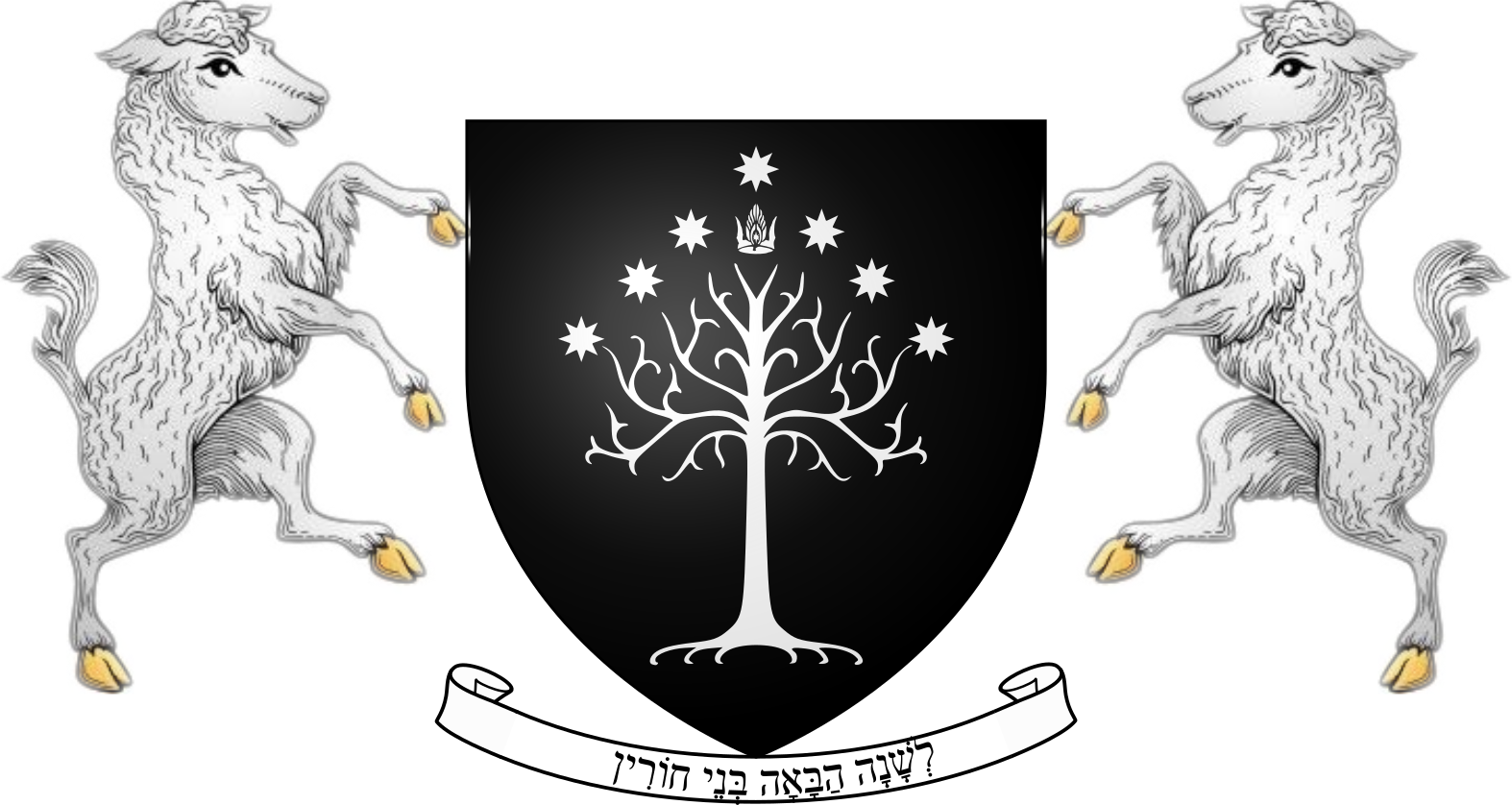חַד גַּדְיָא | A Little Goat, according to the nusaḥ of the Hobbits of the Shire (CenozoicSynapsid 2019)
Source Link: https://opensiddur.org/?p=43998
open_content_license: Creative Commons Attribution-ShareAlike (CC BY-SA) 4.0 International copyleft license, Creative Commons Attribution-ShareAlike (CC BY-SA) 4.0 International copyleft license date_src_start: 1501-00-00 date_src_end: 1526-00-00 languages_meta: [{"name":"English","code":"eng","standard":"ISO 639-3"}] scripts_meta: [{"name":"Latin","code":"Latn","standard":"ISO 15924"}] Date: 2022-04-22
Last Updated: 2025-08-12
Categories: Nirtsah
Tags: 21st century C.E., 58th century A.M., Middle-Earth, Third Age of Arda, War of the Ring, חד גדיא Ḥad Gadya
Excerpt: This adaptation of Ḥad Gadya was written by CenozoicSynapsid and included in their Lord of the Rings fan fiction, "All Who Are Hungry" (Archive of Our Own 2019). . . .
Content:
| Contribute a translation |
Source (English) |
|
|
My father bought a little goat
But little did he pay
But then there came the barnyard cat
And stole the goat away.
|
|
|
And then there came a great gray wolf
From mountains cold and grim
And up he snatched the barnyard cat
And made an end of him.
|
|
|
My father struck the grey wolf down,
His stout stick broke in half,
And so he made a great bonfire
And burned both wolf and staff.
|
|
|
Then Anduin the mighty
Poured in to quench the flame
And first it sparked, and then it spat
But finally grew tame.
|
|
|
Then came the great bull of Araw,
He had so great a thirst,
He drank the river Anduin
And swelled up nigh to burst.
|
|
|
Then came a Ranger of the north
Who bore a great yew bow.
He shot the great bull in the heart
And laid the creature low.
|
|
|
Then came the Shadow in the East
Who forged the ranger’s doom
And bound him as a strengthless shade
In an eternal tomb.
|
|
|
Then came the One who with His song
All goodly things has wrought.
Before him must all Shadows flee
And evils come to naught.
|
This adaptation of Ḥad Gadya was written by CenozoicSynapsid and included in their Lord of the Rings fan-fiction, “All Who Are Hungry” (Archive of Our Own 2019). Click through for the song sung in the context of Frodo, Sam, and Gollum’s epic trek to Mordor.
Contributor: CenozoicSynapsid
Co-authors:
Featured Image:

Title: lshanah habaah bnei horin (CenozoicSynapsid 2019)
Caption: l'shanah haba'ah bnei ḥorin (CenozoicSynapsid 2019)

